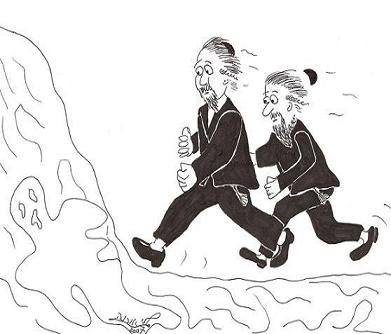
Any object, plant, or animal to which people have bowed and which they have worshiped as part of an idolatrous ritual was forbidden by the Sages for use in the Holy Temple, for the fulfillment of commandments, and in general, for any other use. Thus, for example, if a person planted a tree in order to worship it as an idolatrous object, the tree may not be used for any purpose. A Babylonian sage, Rabbah, asked what the rule would be for a spring to which a man had bowed and which a person considered Divine. Is one permitted to pour the waters of this spring upon the altar, or is one forbidden? What are the issues under debate? On one hand it is possible that the man bowed to the waters which flowed before him at that moment, and now that water has flowed passed and new water, to which none had bowed, has arrived. On the other hand, that person may have bowed to the entire stream, all the waters of the spring, and so use of the spring’s waters would be forbidden. (This debate is not resolved in the Talmud.)
(Babylonian Talmud, Tractate Avodah Zarah 47a)
